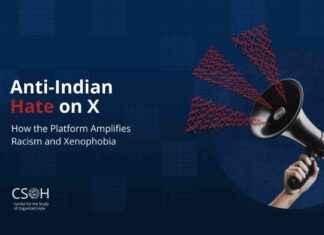Federal Economics Minister Robert Habeck wants to take a close look at the sale of the Viessmann heat pump division to the USA. “We will look at the project as part of the planned test steps and are in talks with the seller and the investor so that the project serves our economy and Germany as a location,” said the Greens politician.
The advantages of German energy policy and the profits that would be generated with it should continue to benefit Germany as a business location. German companies in particular have advanced heat pump technology, said Habeck. State Secretary for Economic Affairs Patrick Graichen said at an IG Metall event in Berlin that it was about possible commitments for investments and jobs.
The North Hessian company Viessmann announced last night that it would sell its air conditioning division to US competitor Carrier Global. This also includes the lucrative heat pumps. Above all, they are intended to replace oil and gas heating systems in Germany in the longer term.
Carrier Global estimated the purchase price for the division with around 11,000 employees at 12 billion euros. 20 percent are to go to the remaining Viessmann Group as a block of shares, making it one of the largest shareholders in the US company. The deal should be completed by the end of the year, as both sides announced.
Tough international competition
According to experts, heat pumps will be built primarily outside of Germany in the future. Even before the Viessmann air conditioning division was sold, there was increasing investment in other European countries, reports the Munich-based consulting company S
With the deal that has now been decided, the core business of the heating contractor Viessmann, founded in 1917, will be absorbed by the Carrier group, which is around five times the size, and will thus have significantly greater financial strength. According to company circles, faster growth will be possible. Ultimately, in global competition, at some point only size and quantity count. “The merger will create a fast-growing innovation leader in a highly competitive market from a position of strength,” said company boss Max Viessmann, who is also to receive a seat on the carrier board of directors.
The Asian manufacturers are already producing more competitively and could realize further synergies in value creation due to the similar technology to air conditioning systems, write the analysts Florian Moll and Christoph Blepp from S
The market environment in this arms race will become more difficult in the long term, especially for smaller heating manufacturers. For the customers, the increasing competition will bring lower prices for the devices, expects S
Carrier boss sees enormous growth opportunities
Carrier boss David Gittin described the acquisition as a “game-changing opportunity”. The Viessmann climate division is crucial for the European energy transition. The company has an extremely strong market position, unique sales channels and enormous growth opportunities. The US company emphasized the market access of over 75,000 plumbers in 25 countries who bring Viessmann products into households. The European heat pump market will triple to around 15 billion US dollars by 2027. At the same time, Carrier announced that it would abandon other activities such as fire protection and refrigeration equipment.
Viessmann added that both sides had agreed on long-term guarantees. Operational redundancies are excluded for three years, important locations for production and development are secured for five years and Allendorf an der Eder is set as the headquarters for ten years. 106 million euros are to be distributed to the employees of the division as a special bonus “for 106 years of success”. The division accounted for 85 percent of sales at Viessmann last year, which had increased by 19 percent to a record value of around 4 billion euros for 2022.
The company Carrier from the US state of Florida is considered the inventor of modern air conditioning and was founded in 1902. The group employs 52,000 people and earned $20.4 billion last year. North and South America accounted for 60 percent of sales. The company has three production sites in Europe, in France and Spain. In 2004, the Americans took over the refrigeration technology of what was then Linde AG, but later stopped production in Germany.
Company owner Max Viessmann emphasized that a large part of the proceeds from the sale should flow into the remaining business areas of the Viessmann Group. These include refrigeration, real estate and investment activities. Including companies that have not yet been included in the balance sheet, the remaining part is already generating annual sales of around 1 billion euros and should surpass the current size of the climate division by the end of the decade. They will also work closely with Carrier operationally.












